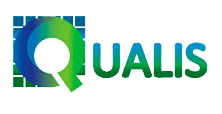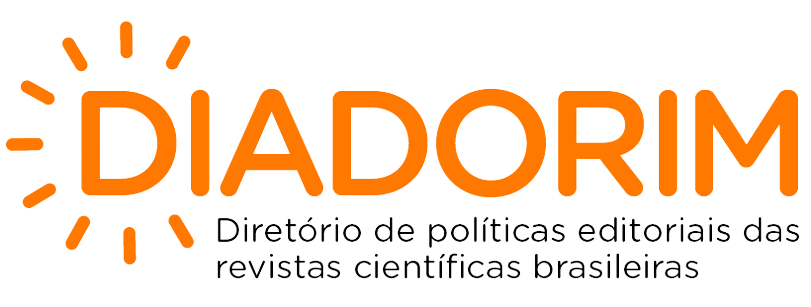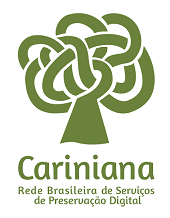The teaching of social media in the courses of graduation in biblioteconomics of the south of Brazil
DOI:
https://doi.org/10.5433/2317-4390.2017v6n2p94Keywords:
Librarianship - Graduation, Curriculum, Social mediaAbstract
Introduction: Globalization and ICT have contributed to the emergence of new professional demands. In this way, the librarian, as information manager, came to have a broader field of action.
Objective: This work presents social media as a resource for the librarian's work and investigates the teaching of social media in the curricular matrices of the undergraduate courses in Librarianship of Higher Education Institutions of the South region of Brazil, verifying the approach to the terms social networks, Facebook, Twitter, blogs and the internet; as well as the knowledge of the disciplines that have the teaching of social media in their curricula.
Methodology: In the methodological procedures, we presented the research universe, which are the seven Institutions of Higher Education, namely: in Santa Catarina, UDESC, UFSC and Community University of the Region of Chapecó; in Paraná to UEL, and; in Rio Grande do Sul, UFRGS, FURG and the University of Caxias do Sul. Data collection was carried out on the sites of the librarianship courses of these institutions and the questionnaire was applied to the coordinators and heads of the courses.
Results: In the results, it was verified that in three of the aforementioned institutions, there is the teaching of social media in the Graduate Course in Librarianship.
Conclusions: More and more social media is part of the daily life of librarianship scholars and this is an immutable reality. It was concluded that 75% of the respondents consider it very important to include social media in the curricular matrices of the courses, to hold discussions on social media in the area of Librarianship and Information Science, as well as to offer subsidies for professional reflections on the use of the new tools of work, uniting theory and practice in its area of activity. It also points out the need for courses to keep up with social media and new technological trends, proposes adjustments in its curricular matrix, respecting its National Curricular Guidelines (DCNs), but at the same time, seeking to meet the new requirements of the market more and more competitive and innovative.
Downloads
References
CARDOSO, A. C. L. O ensino das mídias sociais nos cursos de Graduação em Biblioteconomia do Sul do Brasil. 48 f. Trabalho de Conclusão de Curso (Graduação em Biblioteconomia) - Universidade do Estado de Santa Catarina, Florianópolis, 2016. Disponível em: http://sistemabu.udesc.br/pergamumweb/vinculos/00002f/00002fed.pdf. Acesso em: 11 abr. 2016.
CASTELLS, M. A galáxia da internet: reflexões sobre a Internet, os negócios e a sociedade. Rio de Janeiro: Jorge Zahar, 2001.
CORRÊA, E. C. D. Consumidor de informação 3.0. In: PRADO, J. do (Org.). Ideias emergentes em Biblioteconomia. São Paulo: FEBAB, 2016. p. 60-68. Disponível em: http://www.ideiasemergentes.wordpress.com/. Acesso em: 30 maio 2016.
COUTTO, G. O que é mídia social? 2016. Disponível em: http://www.marketingdigitaldicas.com.br/o-que-e-midia-social. Acesso em: 05 nov. 2016.
GABRIEL, M. Marketing na era digital: conceitos, plataformas e estratégias. São Paulo: Novatec, 2010.
INTERATIVA. A evolução das redes sociais e o Social Media. 2016. Disponível em: http://www.iinterativa.com.br/infografico-evolucao-das-redessociais-social-media/>. Acesso em: 26 jul. 2016.
LIMA, A. P. L.; FREIRE, I. M. As mídias sociais de olho na CI na perspectiva da disseminação da informação. Encontros Bibli: Revista Eletrônica de Biblioteconomia e Ciência da Informação, v. 19, n. 39, p. 113-132, jan./abr. 2014.
PAULA, R. de. A história das mídias sociais, 2011. Disponível em: http://www.midiassociais.net/2010/11/a-historia-das-midias-sociais/. Acesso em: 25 set. 2016.
PRADO, J. M. K. do. Presença digital de bibliotecas universitárias: diretrizes para o uso de mídias sociais. 2015. 233 f. Dissertação (Mestrado em Gestão de Unidades de Informação) - Universidade do Estado de Santa Catarina, Florianópolis, 2015. Disponível em: http://tede.udesc.br/tde_arquivos/35/TDE-2015-08-27T171250Z2205/Publico/123094.pdf. Acesso em: 17 out. 2016.
QUINTANILHA, P. O que são mídias sociais? 2014. Disponível em: http://www.pedroquintanilha.com.br/midias-sociais/o-que-sao-midias-sociais/. Acesso em: 19 out. 2016.
RECUERO, R. O que é mídia social? Social Media, 2008. Disponível em: http://www.raquelrecuero.com/arquivos/o_que_e_midia_social.html. Acesso em:15 set. 2016.
SILVA, L. C. Competências essenciais exigidas do bibliotecário frente aos desafios da sociedade da informação: um estudo dos profissionais de Goiânia - GO. Brasília, 2009, 248 f. Dissertação (Mestrado em Ciência da Informação) -Universidade de Brasília, Brasília, 2009.
TOMAÉL, M. I. et. al. Práticas de inovação do bibliotecário no ambiente virtual. Encontros Bibli: Revista Eletrônica de Biblioteconomia e Ciência da Informação. v. 19, n. 39, p. 83-112, jan./abr., 2014.
Downloads
Published
How to Cite
Issue
Section
License
Copyright (c) 2017 Informação@Profissões

This work is licensed under a Creative Commons Attribution 4.0 International License.
A revista se reserva o direito de efetuar, nos originais, alterações de ordem normativa, ortográfica e gramatical, com vistas a manter o padrão culto da língua e a credibilidade do veículo. Respeitará, no entanto, o estilo de escrever dos autores. Alterações, correções ou sugestões de ordem conceitual serão encaminhadas aos autores, quando necessário.
O conteúdo dos textos e a citação e uso de imagens submetidas são de inteira responsabilidade dos autores.
Os trabalhos publicados passam a ser propriedade da revista Informação& Profissões, ficando sua reimpressão total ou parcial sujeita a autorização expressa da revista. Em todas as citações posteriores, deverá ser consignada a fonte original de publicação, no caso a Informação&Profissões.












